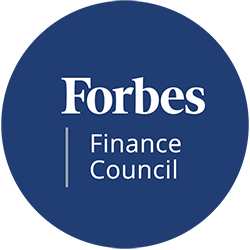By Marc Blythe and Matthew Snow

Financial audits play a pivotal role within every organization, public or private, and the capital markets. They are the foundation upholding the integrity of financial reporting, ensuring regulatory compliance and safeguarding investor interests. It has never been more imperative for companies to get them right.
Delivering dynamic, multifaceted and insightful audits that give public and private companies the actionable intelligence needed to drive value requires significant expertise, demonstrated accuracy and indisputable autonomy.
However, intensified oversight from the Public Company Accounting Oversight Board and the Securities and Exchange Commission, as well as a decline in qualified professionals, has created a perfect storm where the demand for accurate and reliable financial information is on the rise, but the number of experienced experts is falling. What does this mean for companies? Quality and reliability could be slipping. This could have broad implications across industries and organizations.
Trends In Auditing
The PCAOB recently revealed two concerning trends in auditing:
- Year-over-year increases in the number of audits with deficiencies across firms of all sizes.
- Noncompliance with PCAOB standards.
In a July staff report, the PCAOB presented aggregate observations from its inspection of 710 public company audits from 157 firms in 2022. The board expects roughly 40% of the reviewed audits to have at least one Part I.A deficiency. In 2021, that figure was 34% and in 2020, 29%. What’s more, where noncompliance with PCAOB standards and rules is concerned, 46% of audits are expected to have Part I.B deficiencies. That’s an increase from 40% in 2021 and 26% in 2020. Several factors are likely contributing to these trends:
• Talent Gap: In an industry built on, and relying upon, an apprenticeship structure, the AICPA’s documented decrease in accounting enrollments and degrees and the simultaneous rise in retirements impose a significant strain on the industry’s level of experience.
• Lack Of Oversight: Remote work and a continued shift in companies relying on international shared service centers for auditing work have introduced new challenges. These include the absence of personal interaction and collaboration, lack of communication, and differing quality, training and auditing standards.
• SPAC Growth: Special purpose acquisition companies accounted for 60% of all initial public offerings in 2020. Their rise in popularity led to increased PCAOB and Securities and Exchange Commission scrutiny and oversight. The PCAOB’s report on the inspections said that 61% of the SPAC-related audits from 2021 had at least one deficiency, and in 2022, 37% of reviewed SPAC audits had at least one deficiency.
• Audit Firm Exits: Companies need accounting firms more than ever to navigate the ever-increasing complexities, but there is another trend afoot: Audit firms are exiting the public company business due to industry pitfalls such as the severity of fines, bad reviews and exposure to liability.
The PCAOB’s Vigilance
It’s critical for all companies, regardless of whether they are publicly traded or not, to focus on their control framework, strategy and platforms to enhance the quality and integrity of audits. It’s these audit characteristics the PCAOB is working increasingly harder to uphold. This can be seen from the PCAOB’s proposal, which while only applicable to publicly traded companies, has the potential to also impact private company audits.
In its June 6 proposal, the PCAOB suggested widening an auditor’s responsibility to scrutinize a company’s compliance with laws and regulations in general. The proposal would expand the scope of public company audits by establishing new auditor obligations and responsibilities. It comes amid mounting frustrations that audit firms are failing to protect investors from financial malfeasance.
“By catching and communicating noncompliance sooner, auditors can help companies course correct and better protect investors from risk,” PCAOB Chair Erica Y. Williams stated in a news release about the proposal.
Dissenting voices argue, however, that the proposal goes beyond the core competency of auditors and could significantly increase the need for and reliance on specialists or lawyers on audits.
I believe the proposal signals a disconnect between what the PCAOB expects and the core competencies of the audit profession. It’s feared that by expanding the scope of their audits to include a significant increase in their understanding of laws and regulations, the PCAOB could indirectly affect financial statements, and noncompliance by registrants could result in a material misstatement to the financial statements.
The potential impacts don’t end there. I believe the PCAOB’s continued regulatory push to ensure quality and reliability could have the opposite result. These increased requirements could lead to the cost of audits increasing. The stringent inspections, fines, penalties and reputational risks associated with noncompliance further contribute to the challenges audit firms face. Companies will be faced with accepting increased audit fees or changing audit firms to obtain lower costs.
Increased regulatory scrutiny has already impacted decision making within firms. Accounting firms crossing the threshold of 100 public audit clients face more frequent regulatory inspections, pushing them to carefully balance portfolios between public and private companies.
Navigating The Future
The PCAOB has made it clear it’s on a path to improve the quality of auditing services along with increased detection and prevention of audit deficiencies. To address these challenges, here are tactics companies can consider:
• Leverage external audit expertise to augment internal finance teams. Internal teams should be zeroed in on propelling a company forward. Adding audit consultants to your bench, to focus on compliance, design controls and assessing compliance gaps, drives quality without distracting internal teams.
• Add value by focusing on the efficiency and effectiveness of day-to-day operations. Compliance efforts can be turned into value-added opportunities with external help. Restatements, material weaknesses, reporting and remediation efforts demand significant resources. Time and accuracy are critical drivers of value here. Get answers and solutions more quickly and accurately with experienced partners.
• Strengthen your company’s internal controls. Implement and maintain strong internal controls over financial reporting. This includes documenting processes, conducting internal audits and ensuring you have a process for detecting and correcting deficiencies.
• Provide regular training to your accounting personnel on PCAOB standards and recent updates. Staying informed about the latest requirements can help your staff maintain compliance.
As public and private companies adapt to the shifting landscape of audits, they must remain vigilant to navigate the challenges posed by the evolving regulatory and professional environment. The broad implications of these changes require collaboration to shape a future where accuracy, reliability and transparency of financial reporting remain paramount.
- Medical Device Company – Financial statement uplift for two fiscal years and most recent Q3 audit support, technical accounting, interim controllership services, quarterly presentation, segment reporting & SOX preparedness.
- Healthcare Company – Interim Chief Accounting Officer services, technical accounting, recruiting services for other positions.
- Software Technology Company – Technical accounting, FP&A support, interim accounting support.
- Food & Beverage Company — Interim CFO and full outsourced accounting solutions, technical accounting and tax services.
- Dental Company — Technical accounting, FP&A services, interim accounting solutions, integration services.
Blythe Global Advisors is an accounting advisory firm with a difference. We have a proven track record of helping companies – from startups to brand-name enterprises, U.S.-based and international – fill the gap in accounting and financial expertise. Whether you need help with a simple financial statement or a complex business combination, we offer customizable, flexibly priced solutions that we deliver via our world-class service delivery process.



